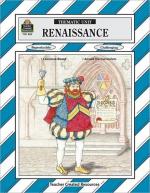|
This section contains 2,662 words (approx. 9 pages at 300 words per page) |

|
Although Nicolaus Copernicus (1473–1543) laid the groundwork for the modern scientific study of the heavens, it was Italian astronomer, mathematician, and physicist Galileo Galilei (1564–1642) who both built on those theories and bore the hardships because of how deeply they challenged conventional beliefs. Galileo's accomplishments characterize the great leaps in science that the Renaissance encouraged. He invented the thermometer, wrote about the principles later expanded by Sir Isaac Newton's first two laws of motion, and experimented with gravitation. Because of works like this, he is considered the founder of modern mechanics and experimental physics, as well as the founder of the modern experimental method later expanded on by French Renaissance philosopher and mathematician Rene Descartes (1596–1650).
In 1610, Galileo perfected the telescope, which allowed him to see mountains on the moon as well as discover new planets. It also...
|
This section contains 2,662 words (approx. 9 pages at 300 words per page) |

|




